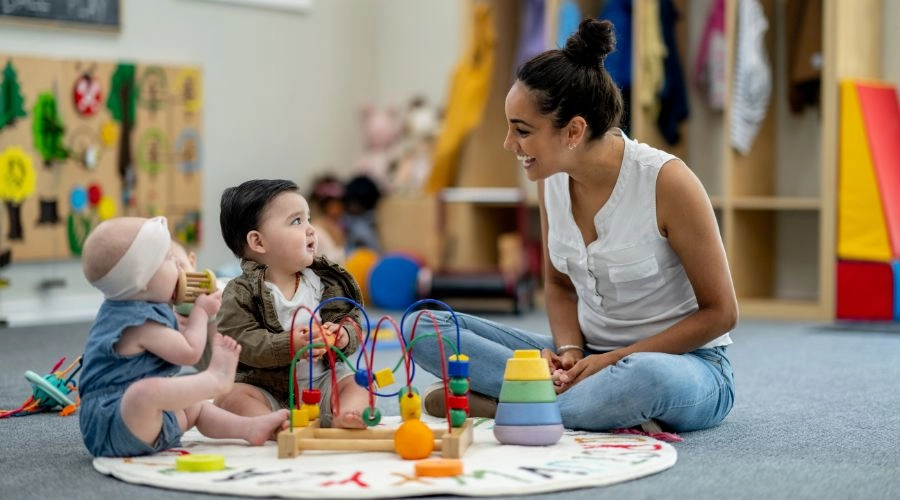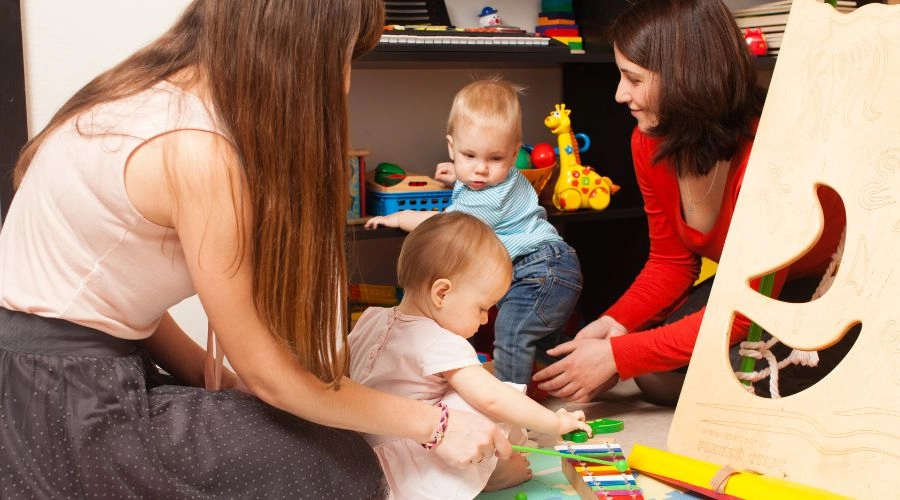How does it appear, and how can it be avoided? Do you assist your child through each season?
What exactly is early childhood mental health?
Children are always growing. Throughout their early years, their brains absorb a massive quantity of information. Every day, the settings, social interactions, and discoveries of children shape their development. Since their brains continually evolve, youngsters react differently to stressful events than adults. Helping your kid cope and supporting them through difficult times is critical to sustaining healthy brain development.
What can you do to help your child’s mental health?
There are two practical approaches to promoting excellent mental health in your child’s early years. One method is to create a learning and development environment. The other is to provide good encounters as they explore the world. Kids must have the opportunity for open-ended investigation, problem-solving, and pleasure! Please support them and provide good comments along the way.
Organize their learning environment to include the following:
- Convenient access to open-ended play materials (ex: art supplies, blocks, books, etc.)
- Room for autonomous play Area
- relaxing activities or peaceful play
Encourage them with remarks like:
- “This area is so lovely now that you’ve placed your toys back in the basket.”
- “Wow! Look at how hard you worked to construct that tower.”
- “I like how you persisted in attempting to place the jigsaw piece in the puzzle; you didn’t give up!”
Being present, engaged, and encouraging are critical components in ensuring your child’s mental health stays good and sets them up for a successful future.
What does it look like when a kid is worried or has a mental health disruption?
First, observe their conduct. Stress symptoms may be difficult to detect since a child’s capacity to express their emotions differs. Stress symptoms may arise briefly or last for an extended amount of time. One or more of the following changes may occur:
- Changes in eating, sleeping, or bathroom routines
- Separation anxiety from parents or teachers
- Horrible nightmares or weeping spells
- Nail-biting, thumb-sucking, or hair-pulling
- I’m feeling ill (ex: headaches or upset stomach)
- Chewing on garments or other objects
- want to be alone or withdraw from others
- Excessive aggressiveness or acting out
- Themes for pretend play may be relevant to the present circumstances.
What can you do to help your kid cope with a difficult situation?
You can aid children now that we know what to look for. Sharing and teaching them techniques to deal with stress, such as:
- Encourage youngsters to communicate their emotions. Let them feel and be in whatever mood they choose. Let them know it’s alright to feel the way they do. Allow for quiet alone time.
- Reduce your expectations and avoid placing too much pressure on your children.
- Give your children appropriate nourishment and lots of rest. Try relaxation and mindfulness practices like breathing, stretching, or listening to peaceful music to relieve stress.
- Children may learn to manage by seeing characters in challenging circumstances via literature.
- Avoid “busy” schedules, but stay consistent and stick to your regular routines. When children’s typical habits are maintained, they feel comfortable and secure.
- Promote sketching and writing. Youngsters will be able to express themselves by writing or drawing. Teach youngsters to draw faces that depict their feelings, whether they are “glad, sad, or scared, for example.”
- Promote movement, dancing, and physical activity. Impromptu dancing parties are a terrific way to start actively! Physical exercise reduces stress.
- Promote puppet play. Youngsters will be able to build a reality they can control and replicate traumatic situations in a manner they can handle.
Early childhood mental health may set the tone for children’s life in the future. Equipping yourself and your children with methods to handle stress can help prepare them to traverse the early years and beyond confidently.






